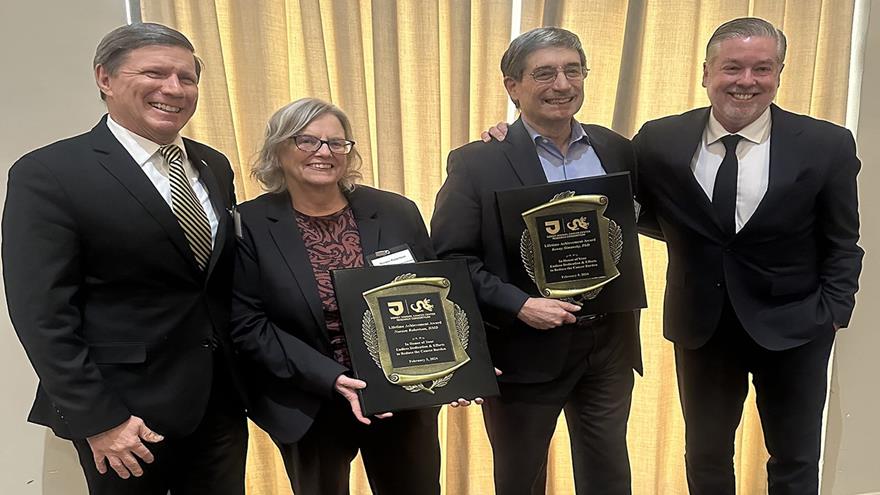Nations First Web Site on Emergency Preparedness for Diverse Communities to Be Developed
August 9, 2007
Related

- Bolstered by Research Consortium with Drexel, Jefferson’s Sidney Kimmel Cancer Center Earns NCI Comprehensive Cancer Center Designation
- No link between acetaminophen use during pregnancy and children's autism risk
- Drexel Recognizes Gregory E. Deavens, CPA, CGMA as Business Leader of the Year
- $15 Million Gift from Howley Foundation Expands Drexel Scholarship Program for Local Graduates
The first national resource center and clearinghouse on public health emergency preparedness for racially and ethnically diverse populations will be established with the help of two grants from the U.S. Department of Health and Human Services’ Office of Minority Health.An interactive Web site, aimed at national, state and local audiences, will serve as the central source and communications portal for diverse communities. The site will feature best practices, innovations, research and policy on preparedness for emergencies such as hurricanes, pandemic flu and terrorist attacks. The site will also include language translations.Both grants were awarded to the Drexel University School of Public Health, said Dennis Andrulis, Ph.D., associate dean of research and director of the School’s Center for Health Equality, who will serve as the principal investigator of the grants. One grant, for $275,000, will enable the School to develop emergency preparedness recommendations for vulnerable diverse populations with the help of a panel.The panel’s recommendations will be posted to the Web site, Andrulis said.No prior effort has brought together a panel of such expertise and resources from a variety of organizations such as the Federal Emergency Management Agency and Centers for Disease Control and Prevention with the goal of planning, maintaining and executing emergency preparedness strategies for diverse communities, Andrulis said.About 30 representatives will convene two times, beginning in the fall, to develop a strategy guide for state, county and local public health agencies. The goal will be for agencies to tailor their guides to include diverse populations in their preparedness efforts, Andrulis said. For example, public health departments in San Francisco would need to stress language and cultural differences for Asian populations and immigrants.With the help of the Office of Minority Health, the representatives will implement strategy guides on emergency preparedness in five cities — as yet unnamed — to improve their existing plans.“The grant will help us build upon the lessons learned in New Orleans after Hurricane Katrina, to enhance and improve the readiness of the public health community,” Andrulis said. “We look forward to working with the National Minority AIDS Council so that communities nationwide are better prepared to meet the public health needs of all their residents, including their minority and immigrant populations should a major event occur.”The other grant, for $370,000, will enable Drexel’s School of Public Health to pool national, state and local resources in launching and establishing the Web site. Among more than 300 Web sites of organizations involved with emergency preparedness, no central source exists for the exchange of information and communication with professionals, policymakers and the public, he said.News media contact: Brian Rossiter, Drexel News Bureau 215-895-2705, 267-228-5599 (cell) or brian.rossiter@drexel.edu
In This Article
Drexel News is produced by
University Marketing and Communications.
now.editor@drexel.edu
For story suggestions or to share feedback
now.webmaster@drexel.edu
For questions concerning the website, or to report a technical problem